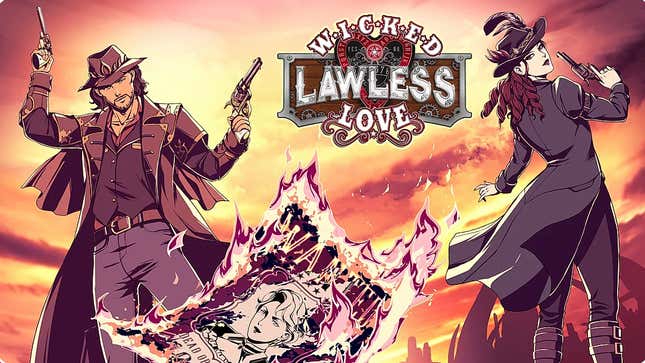
Contracted freelance writers for Voltage Entertainment, publisher of notable dating game mobile app Lovestruck, are striking to protest what they describe as a history of low wages and unreasonable deadlines.
In the Reddit post announcing the strike, the writers stated, “The writers of Lovestruck have come together to unanimously demand better working conditions, greater transparency, and increased protections. To that end, we asked the management of Voltage USA to recognize us and meet our demands—and since management has refused, we will be going on strike.”
The strike came about after attempts to negotiate for better pay failed to produce the requested wage increase.
Lovestruck is a romance and dating simulation app published by Voltage Entertainment, Inc, based in San Francisco. With over 1 million downloads, the app houses several different visual novel type games for players to choose from based on their fancy. Feeling a supernatural romance? Check out “Havenfall is for Lovers.” Is a harem romance featuring a motley crew of thieves more your speed? Then “Queen of Thieves” is for you. The games themselves are arranged in “seasons” consisting of 12 episodes that average two to three thousand words per episode.
The writers for these games are given a character and expected to write them in three-episode chunks—called “sets”—at a time. The expected turnaround times can be vicious.
“I have personally on multiple occasions been given deadlines of 4-5 days to hand in a set,” one anonymous source told Kotaku. “My average is 7 days.”
Others writers tell similar stories of grueling deadlines.
“When I first started,” a second writer told Kotaku, “I was being asked to write my typical ’set’ in less than one week. In fact some of them were as short as three days.”
As time went on, the writer asked for more time to accommodate other obligations that prevented her from meeting these shorter-than-average deadlines. When her workload then increased to two characters at a time, she struggled.
“I ended up being reprimanded for not accepting super-tight turnarounds with shifting expectations,” she said.
Eventually the writer was able to negotiate her expected turnaround time down to a weekly deadline, but Voltage Entertainment would often fail to get her the materials she needed to begin writing until 2 or 3 days into her work cycle.
“Basically I would have a due date of Tuesday on an assignment for this one set, and be told I’d have the material [to write the set] by Wednesday night, but I wouldn’t get it until Thursday or sometimes even Friday,” she said.
When she wrapped work on a character’s story in February, her producers said they had no more work for her. She hasn’t written for them since, which she assumes is “because they’d rather work with people who don’t insist on two-week turnarounds.”

Beyond crunch conditions typically associated with traditional game development, the Lovestruck contractors are producing what are essentially novellas’ worth of content in a fraction of the time, but aren’t paid what a typical fiction writer would command. The minimum rate for admittance to the Science Fiction Fantasy Writers of America, an organization of “published authors and industry professionals in the fields of science fiction, fantasy, and related genres”—the people who put on the Nebula awards—is currently $0.08 cents per word. The lowest average per-word rate I could find was $0.05.
“Our writers earn anywhere between 3 and 4.5 cents a word,” a third anonymous source told Kotaku. “Our pay is less than half industry standard with opportunities for a ‘raise’ every six months—a raise being a fraction of a cent.”
Even though there is no industry standard for writing for a mobile app, the Lovestruck writers feel that because they put out, by their count, on average 30,000 words a month, they should qualify for a rate on par with what other professional writers make.
Toward that end the writers started organizing in May, with negotiating for higher pay as their foremost concern. By June, every writer was on board to negotiate together for a pay increase to $0.08/word. After attempts to negotiate internally failed, the writers created Twitter and Tumblr accounts and issued their statement on Reddit asking fans not to boycott the app but support their efforts to negotiate for better wages and bear with any interruptions to stories their strike might cause.
“The best thing you can do is send messages to Lovestruck asking them to recognize us,” they said.
Voltage Entertainment did not recognize the writers’ collective efforts but issued its own statement in response.
“Voltage Entertainment USA, Inc. recognizes and values the contractual contributions of all of the freelancers and outsource companies we work with. Our hope was to not lose any of our contract writers and to be able to come to a satisfactory agreement with each of them. [...] At the point the writers refused to work any further on their assignments, they violated their signed work orders. Voltage still attempted to negotiate with each writer for a favorable outcome.”
Voltage also noted in its statement that it would only negotiate with writers on an individual basis and that it did increase their starting rate. The company declined to note what that rate was, but sources tell Kotaku it was $0.05/word—higher than the highest rate previously shared, but lower than what the writers had asked for.
For the moment, Voltage hasn’t canceled any of the individual writers’ contracts. In a collective statement to Kotaku the writers confirmed as much, saying, “None of our 21 fellow Lovestruck writers have had their contracts terminated and we are surprised by the company’s statement which seems to be a very typical form letter that companies use when they want to push back on workers seeking better working conditions.”
The writers will continue to work with Voltage to come to an agreement.
“Love really and truly is at the core of what we do and what motivates us,” the third anonymous writer said.
The second writer echoed those sentiments. “We all care so deeply about this company and the stories we tell,” she said. “We may just be contract workers to some of management, but we are invested in this work and in the impact it has.”
Voltage Entertainment has not responded to Kotaku’s request for comment.

